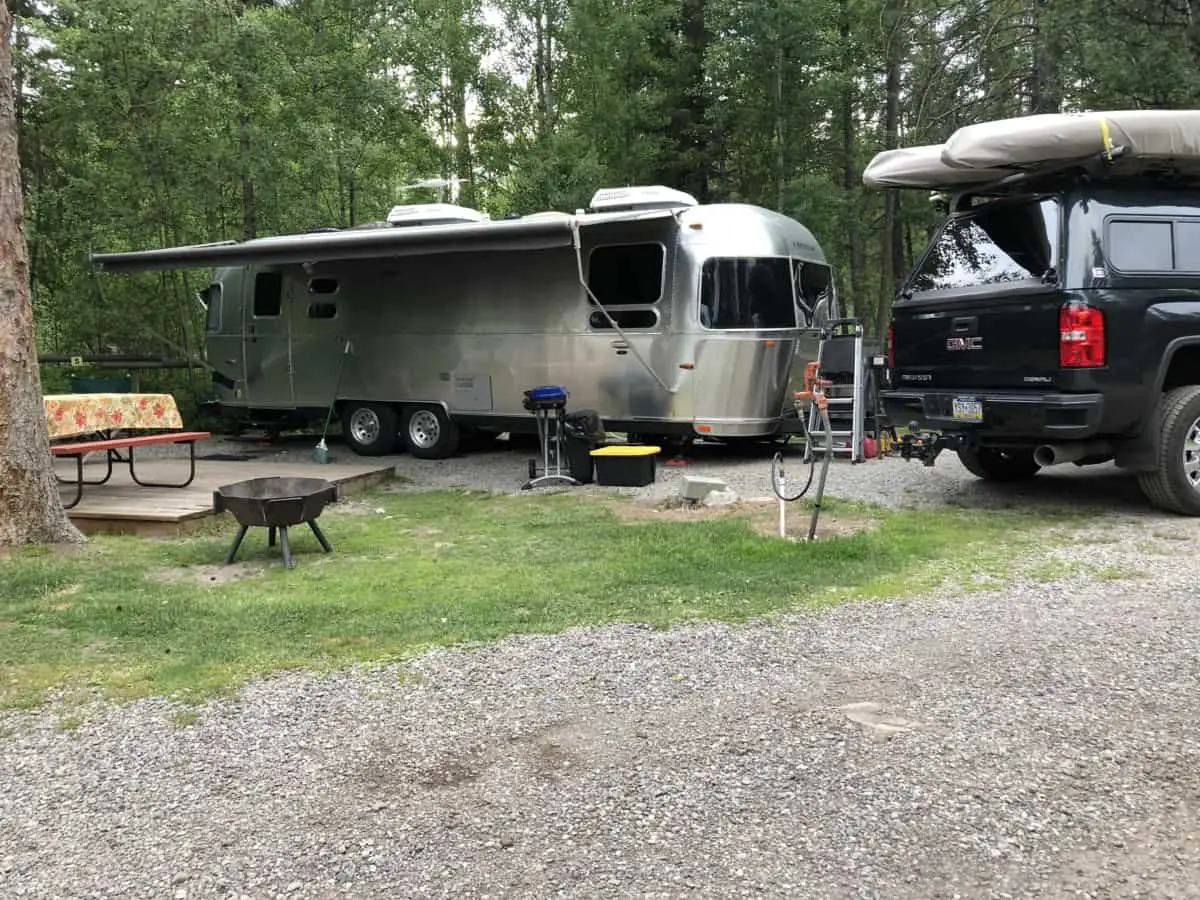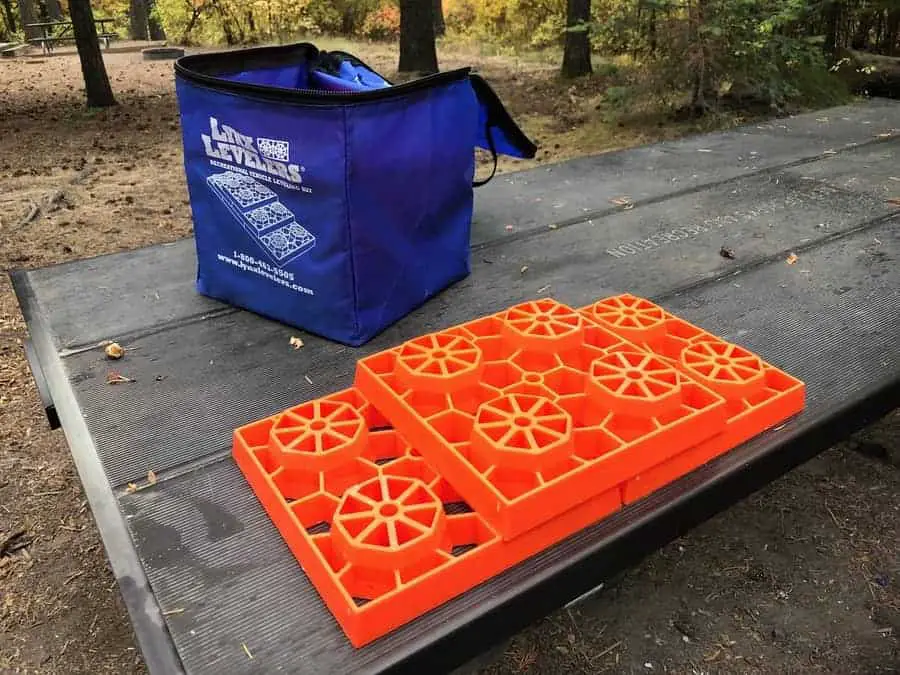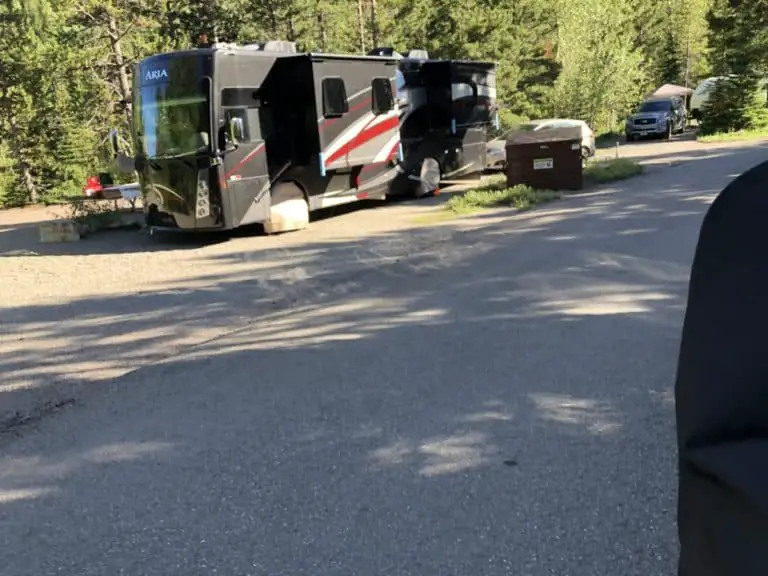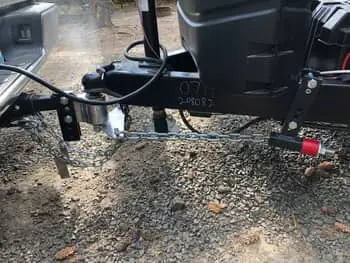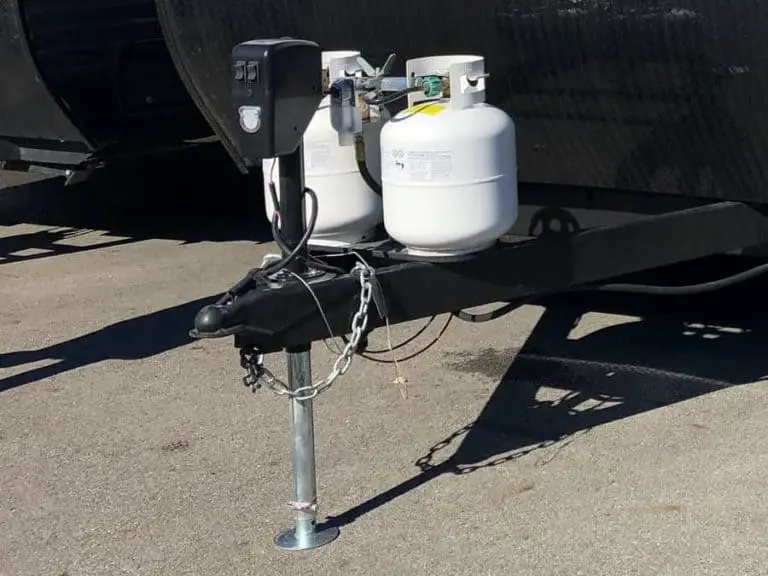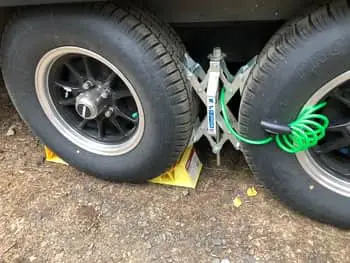Are All Travel Trailers Self-Contained? What You Need to Know
When you think of a travel trailer, a particular image probably comes to mind-four walls, a roof, a floor, and something that can be towed. You may not know that there are quite a few different types of travel trailers based on the needs of families and even individuals-but are they all self-contained?
Not all travel trailers are self-contained. To be considered self-contained, travel trailers must provide basic living needs independently, such as:
- · A water tank and running water
- · Toilet system
- · Some sort of grey and blackwater tanks, when needed
- · An electric system capable of storing power
While almost all travel trailers are considered to be self-contained, there are a few key differences between being good enough for a weekend getaway compared to a long-term living solution. Let’s talk more about what a self-contained travel trailer is and if it is suitable for your needs.
What Does it Mean for a Travel Trailer to Be Self-Contained?
At the turn of the century, RV camping became a huge deal. Automobiles became forms of recreation as well as forms of luxury. This enhanced travel and raised the need for travelers to need accommodations; thus, the travel trailer and the recreational vehicle became popular.
In order to be considered a self contained RV, there are a few essentials that you need to have. These not only include just a place to sleep but also are capable of working without any resources.
Here are the most important essentials for a self-contained travel trailer:
- · Running Water/ Water Tank
- · Toilet or Shower
- · Some form of a septic tank to hold greywater
- · Electrical system with generator, solar, or batteries
Self-contained travel trailers are ideal for those looking for a more affordable version of a vacation home. These types of travel trailers also allow you to live off-the-grid, which has become more and more popular with people choosing more alternative lifestyles. On the opposite end, there are also self-sufficient travel trailers as well.
Are All Travel Trailers Self-Contained?
Most travel trailers are self-contained. There are some models which may not have a restroom that would not be considered self-contained. If you have running water, and a black and gray tank, and power to run your items your trailer would be considered self-contained.
Now that we know a little bit about what makes a self-contained travel trailer popular, it is essential to know that not all travel trailers fall under the self-contained category. There are specific stipulations that some travel trailers simply do not meet.
Some types of travel trailers that may not be self-contained:
- Truck Campers
- Pop-Up Campers
- Specific trailers that have been altered to become travel trailers
- Other models of different RV classes
- Certain Class B models
Almost all modern travel trailers and similar vehicles are capable of being self-contained. As long as there is running water, power, and a toilet/shower system, they are considered to be within the category.
Depending on the trailer that you buy, you may also be able to convert it into a travel trailer. This has become a popular trend among the younger generation as a way to get exactly what they want without having to spend a ton of money to have it. People have fashioned travel trailers out of horse trailers, small trailers they have purchased at Harbor Freight, as well as used trailers they found on Craigslist.
The Basic Setup of a Self-Contained Travel Trailer
Let’s talk a little more about the setup that actually makes a self-contained travel trailer unique. There are three main aspects to a self-contained travel trailer that makes it capable of being a living accommodation either in a campground or in a more rural area. Here are some details that you should be aware of.
- Water: Your average self-contained travel trailer has a water tank that not only supplies water to the bathroom but to the kitchen as well. Depending on the size of your trailer, you may have a larger or smaller water tank.
- Black/Gray Tanks: This is one of the significant aspects of a travel trailer. Having a waste tank allows you to have a functional bathroom off-the-grid, and it also stores used water. One of the most significant downsides of black and gray tanks is that it can only hold so much waste and will have to be emptied in an appropriate place.
- Power: Almost all travel trailers have a power source. These are often deep-cycle batteries since they are capable of holding the most power and they also last the longest. A downside is that these batteries only last a certain amount of time while in use and can be expensive to replace.
As with most things, there are clear positives and negatives to self-contained travel trailers. A lot of them depend on where you are camping as it can have a direct impact on how long you are able to stay as well as what resources are available to you.
What are the Differences in Self-Contained and Self-Sufficient Travel Trailers?
Now that we have a basic understanding of a self-contained travel trailer, we need to discuss the differences between what a self-contained travel trailer is compared to a self-sufficient travel trailer.
A self-sufficient travel trailer is quite similar to a self-contained travel trailer in that it has everything you need for basic survival. Somewhere to sleep, eat, wash, and enjoy. What makes a self-sufficient travel trailer different is that it has the capability of being a permanent accommodation.
Many of these self-sufficient travel trailers also fall into a zero-waste kind of travel trailer where there is no extra energy going into the trailer, and there is no waste going out. These trailers can produce their own electricity and have unique ways to use or store waste and greywater.
Can a Self-Contained Travel Trailer Go Off-The-Grid?
While a self-contained travel trailer may seem like an excellent option for a more mobile home for those on a nomadic lifestyle, they are limited in terms of how long you can actually live in them in places where you are entirely reliant on your travel trailer.
This is where a self-sufficient travel trailer really comes into play. Your average self-sufficient travel trailer has the ability to do at least a few of the following things:
- Generate and store its’ own electricity
- Store or process wastewater
- Allow you to live comfortably off-the-grid for long periods of time.
These are not all they are capable of doing, but some of the essential features. As more and more people are looking for a more remote lifestyle, self-sufficient aspects are being included in more travel trailers each year.
Where Can You Use a Self-Contained Travel Trailer?
For a lot of soon-to-be travel trailer owners, they are interested in where they can camp. Half of the enjoyment of a travel trailer is that you can move your home away from home to anywhere you want to visit. This is one of the reasons camping is still one of the most popular recreational activities to this day.
When it comes to campsites, there are two main types – free and paid.
Free locations can be anywhere that you can legally park without breaking the law. These often do not have any sort of power, water, or sewage available. Free spots can be in the middle of a big city, a big box store parking lot, or a country’s remote areas.
Most of the locations you are going to visit are going to be paid locations. Your fee will allow you access to power, sewage, water, and sometimes other amenities such as pools or restaurants. These are often campgrounds, national parks, or even something similar.
No matter where you park, you should always be sure that you can park there. If you are not sure, then try to call ahead of time and make sure that it is okay that you park there. This can keep you from getting fined or even towed while you are out on the road.
Are There Different Categories of Self-Contained Travel Trailers?
Depending on your personal preference, lifestyle, or even family size, you may be wondering if there are different size travel trailers available. The good news is that since most recreational vehicles are considered self-contained, you have a wide variety of options to choose from.
Let’s go over a few of the main classes of travel trailers.
Class A RV: Largest and Most Expensive
Often the most extensive and most expensive option, these are a fully self-contained trailer or vehicle option. Holding the most significant number of people, they typically have multiple places to sleep, sometimes a full bathtub, and quite a few other luxuries that you cannot always find in the other classes.
Class B RV: Cheaper, but with Fewer Options
Believe it or not, but Class B RV’s are the cheapest option available. They can range anywhere from 15 to 30 feet in length and can cost upwards of $100,000 for the top-of-the-line models. Depending on the type you choose, they may not be self-contained, especially if you go with a cheaper model.
Class C RV: Smaller but Luxurious
The Class C range of recreational vehicles is the younger sibling to the Class A. They come with many of the luxuries that you expect from the higher-end RV’s but at a lower cost. They can even sometimes be larger or as large as Class A. These are almost always self-contained.
If you are looking to get into an RV, then these are just a few of your options. There are quite a few different kinds of campers that do not actually fall into these three categories. These can include:
- Camper Vans
- Truck Campers
- Pop-Up Campers
- 5th Wheels
- Travel Trailers
- Toy Haulers
What are the Advantages of a Self-Contained Travel Trailer?
Now that we know about different self-contained travel trailers let’s talk about these models’ advantages and disadvantages in terms of ownership. What you need to know about taking care of it, as well as what you may be giving up in exchange for convenience.
Advantages of a Self-Contained Travel Trailer
There are many upsides of having your own self-contained trailer:
- The most obvious advantage is the ability to go anywhere you want to go. You can simply latch your trailer on and drive it anywhere the roads take you. For many people, this encourages them to utilize their freedom as well as explore more of the world they live in.
- You are able to stay pretty much anywhere with a travel trailer which can cut down on hotel costs. Most parking lots, public areas, and campgrounds will let you stay. Since you have everything you need within the trailer, it can help you keep travel costs low.
- Another considerable advantage is the protection that a self-contained travel trailer offers. In addition, to have a private place to cook, sleep, and use the restroom or shower, you also have a stronger sense of security for your belongings. Many trailers offer great storage solutions.
- Probably the most significant benefit for most campers is the ability to do dry camping or boondocking. You don’t have to worry about inclement weather ruining your vacation, and it keeps your food and belongings safe and dry.
If you are looking for an affordable vacation home that can be at the beach one weekend and the mountains the next, a travel trailer is an excellent investment that can last you a long time with proper maintenance.
Disadvantages of a Self-Contained Travel Trailer
Owning a large, complicated piece of gear does come with downsides, too:
- Because a self-contained travel trailer is not the same as being a self-sufficient travel trailer, you are going to eventually run out of battery unless you have a way to charge your battery or an extra replacement battery.
- Additionally, you are going to need a sewage dump eventually. Since you cannot just dump wherever you want, you are going to have to find a dumping location after a few days. Some tanks can last up to five days, while others may be as small as three days.
- Probably the most significant disadvantage for most people is the cost of a self-contained trailer. A new trailer can cost you hundreds of thousands of dollars. Even a used trailer can be the cost of a brand-new luxury car.
Depending on the travel trailer you purchase, you may even be limited on where you can take it. Some parks and campgrounds only allow travel trailers up to a specific size, while other locations may be challenging to get to, depending on the size of your trailer.
What is the Typical Cost of a Self-Contained Travel Trailer?
If you are brand new to travel trailers, then the price of a self-contained travel trailer may seem like a significant investment. They can start around $15,000 for a base model and go up anywhere above $100,000 based on the luxuries that it offers.
You have to remember that a travel trailer that is fully self-contained is basically a home on wheels. If you approach the price that way, chances are it won’t seem so bad, especially if you are looking for a more nomadic lifestyle or wanting to explore the country via campgrounds.
If you are trying to keep your costs low, then look for a used trailer or an older model that you can get a discount on. Buying a used model is an easy way to get a higher-end travel trailer while staying within your budget. It is not uncommon for many owners to buy used and upgrade them to their specific preferences.
For those who may not be as prepared for a complete makeover of their travel trailer, you may want to look into outsourcing the job. Many travel trailer customization companies have begun transforming older or smaller models of travel trailers into fully functional vehicles to be used in more remote camping locations.
Is a Self-Contained RV Right for You?
As you can see, self-contained travel trailers off you quite a few benefits that more traditional camping accommodations such as tents do not.
When it comes to knowing if a self-contained travel trailer is right for you, you are going to need to ask yourself a few questions:
- Where do you plan on camping?
- What types of terrain do you have to drive your trailer around?
- How many people are going to be in your travel trailer?
- Is there available power or sewage near you?
- How long are you staying at your destination?
Answering these questions can help you decide not only if a self-contained travel trailer actually fits your needs but if they are worth the additional cost that comes along with them. It can also help you decide what size trailer you need and even determine the class style that is best for your lifestyle.
Final Thoughts
With the rise of camping coming back, more and more people are interested in spending their time outdoors. Self-contained travel trailers give the best of both worlds. They allow you to explore the great outdoors but provide the necessities for survival as well as the comforts of home.
It is important to remember that not all travel trailers are self-contained. Even specific models that are being produced today do not have the water, electricity, and septic that are all requirements. Something that you can do is alter and change your vehicle to fit the needs of yourself as well as your camping style.
Be the first to be notified about FREE tips, hints, coupon codes, and email-exclusive information. All for FREE!

